PITTSBURGH — What is this Montreal Canadiens season really about?
If you answered “being in the mix,” you get a big X because it’s not that. There is a way for this Canadiens season to be a success even if they are not in the playoff mix in March or even February.
What they need to see is progression, which is what last season was about, too. The difference is progression this season does not look quite the same as it did last season. Progression this season includes results, whereas last season it didn’t.
And thus, with the Canadiens arriving in Pittsburgh coming off a brutal bag skate Friday in Washington after a sloppy 6-3 loss to the Capitals the night before, they needed to show progression, but it would ideally come coupled with a result.
Against the Penguins, the Canadiens went 1-for-2, showing some progress from the game Thursday but still losing 3-1.
“Of course you would have liked to get a result tonight because I felt the guys deserved something, we just didn’t get that,” coach Martin St. Louis said. “But it’s a hard league. I feel like it’s a really good sign and a step in the right direction. Now it’s just to maintain that.
“If we do that, I think we’ll get going.”
But was it really a progression? Compared to Thursday’s game in Washington, absolutely it was. But in the grand scheme of this season, not really.
It was, in fact, a regression.

Defenseman Jayden Struble and the Canadiens looked better against Valtteri Puustinen and the Penguins, but it’s not enough. (Charles LeClaire / Imagn Images)
The Cambridge Dictionary defines regression as a “return to a previous and less advanced or worse state, condition or way of behaving.”
We have seen this story before, and the circumstances are nearly identical.
Back on Oct. 17, the Canadiens were hosting the Los Angeles Kings, who had played the previous night in Toronto and got spanked 6-2. They were a wounded animal, and the Canadiens planned on pouncing on them right off the start. Instead, they turned the puck over 14 times in the first period and lost 4-1.
Puck management was deficient, Nick Suzuki called his team’s performance “immature” and St. Louis agreed. He called it “unacceptable.”
The Canadiens’ next game was at the New York Islanders, a shootout loss where they were far more responsible with the puck, played the deep game St. Louis wanted and still came out on the losing end.
On the morning of the Canadiens’ next game, St. Louis noted how he liked what he saw from his team from a puck management perspective, but it had maybe gone a bit too far in wanting to take care of the puck. Generating offence, after all, requires some degree of risk.
“What I liked about the Islanders game is we really had a deep-game mentality,” St. Louis said that morning. “And sometimes, I find that we could have moved the puck, instead of getting it deep, without taking any risk. But the boys, we talked about how we want to play a deep game, a mature game, and I felt like we left stuff on the table because we wanted to play a deep game. So it’s a fine line as a coach, right? You have to talk to your team about that.
“But I feel like our offensive game is going to keep improving, but again, we’re in a phase here where we’re learning how to win. And getting pucks deep is part of it when there’s nothing. But sometimes there is something that maybe we don’t take advantage of. We left stuff on the table there. So it’s a fine balance, and I’ve got to be careful about how I talk about it with my players. But I feel like our offensive game’s going to keep improving, but not at the price of doing the things on the other side of the puck, and not at the price of trying hope plays where there’s nothing there.”
Later that night, the Canadiens got spanked 7-2 by the New York Rangers, leading to another existential crisis, this time centered on the Canadiens’ defensive zone play. They worked on it, swept a weekend back-to-back at home against the St. Louis Blues and on the road against the Philadelphia Flyers, and then fell right back into another crisis.
In the game against the Penguins, like the game against the Islanders, the Canadiens managed the puck meticulously, almost too meticulously, through two periods and found themselves down 2-0 on two goals by Sidney Crosby.
At one point early in the second period, Cole Caufield was skating through the neutral zone and had a relatively unimpeded path into the Penguins zone. He had Josh Anderson more or less stationary at the offensive blue line. He had a decision to make, either carry the puck forward, hit Anderson with a pass or dump it in and hope Anderson can go get it.
He chose Door No. 3 because that was what the Canadiens were focused on, that was what a bag skate in Washington a day prior was meant to drill into him and his teammates. Take care of the puck at all costs, don’t take unnecessary risks, play safe.
So Caufield drilled the puck in off the end boards, hoping the strong bounce would go directly to Anderson. It went to the Penguins instead, and they were right back on offence.
It was a capsule of what the first 40 minutes looked like for the Canadiens. Extreme caution above all else. And in the third, yes, the Canadiens made a push, but the veteran Penguins — in an equally desperate situation to fix their game and get results — were sitting back, putting pucks deep and forcing the Canadiens to go 200 feet to generate offence like veteran teams do.
“That’s a veteran team,” Alex Newhook said. “I think you see that when you play older teams, how they’re patient and wait for you to make mistakes. They did that to us tonight. I think that’s something we can take out of their book. … They sat back. They weren’t really taking chances, and we had to take chances, obviously, to get back in the game.”
When asked after the game if all the emphasis on puck management swung his players too far to the cautious side of the risk management pendulum, St. Louis agreed.
“Yeah, a little bit, it’s finding that balance,” he said. “I lived it as a player. But we’ll find the balance. I think we can execute more things without taking any risk, and I feel sometimes we got pucks deep when we could have done something better with it. But I think it comes with maturing as a group a little bit and understanding that there’s stuff out there that we can do without taking any risk. But I don’t see this transition as going from zero to 100. I think it’s going to be (gradual). But we’ll get there.”
Sound familiar?
The Canadiens are right back where they were two weeks earlier. Right back where they were before getting schooled by the Rangers. Right back where they were before they embarked on another crisis of confidence.
Steps in the right direction are only valuable if another step in the right direction is taken afterward. The Canadiens had an opportunity to take that next step following the game against the Islanders, and they fell flat on their face. They had an opportunity to take that next step following the back-to-back wins last weekend, and they fell flat on their face.
So far this season, we have not seen progression. We have seen a consistent series of mini-crises and recoveries. That inconsistency has been the only consistent part of how the Canadiens have played through 12 games.
“It’s tough to hold your head high after games like this, especially after the stretch that we’ve been on,” Kirby Dach said. “It’s frustrating, but hopefully if we keep doing the right things day in and day out, making sure we’re getting all the details right, stuff will start to go our way.”
Will this time be different? Will they take another step in the right direction? It’s impossible to say. The Canadiens lost this game, but they played a responsible brand of hockey that was lacking in Washington, that was lacking at home against the Rangers, that was lacking at home against the Kings.
Maybe the Canadiens can build on that this time, but so far, they have earned zero benefit of the doubt in that department.
They are not progressing. At least not yet.
(Top photo of Canadiens coach Martin St. Louis: Charles LeClaire / Imagn Images)

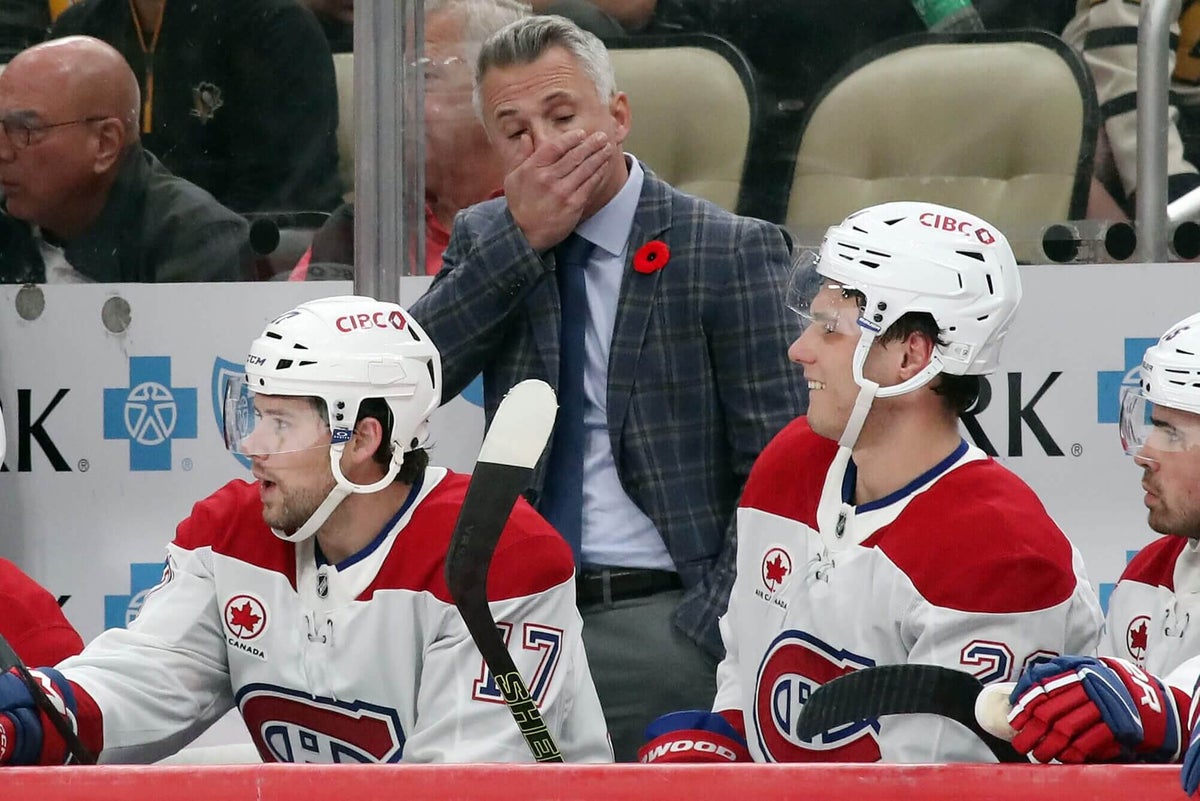
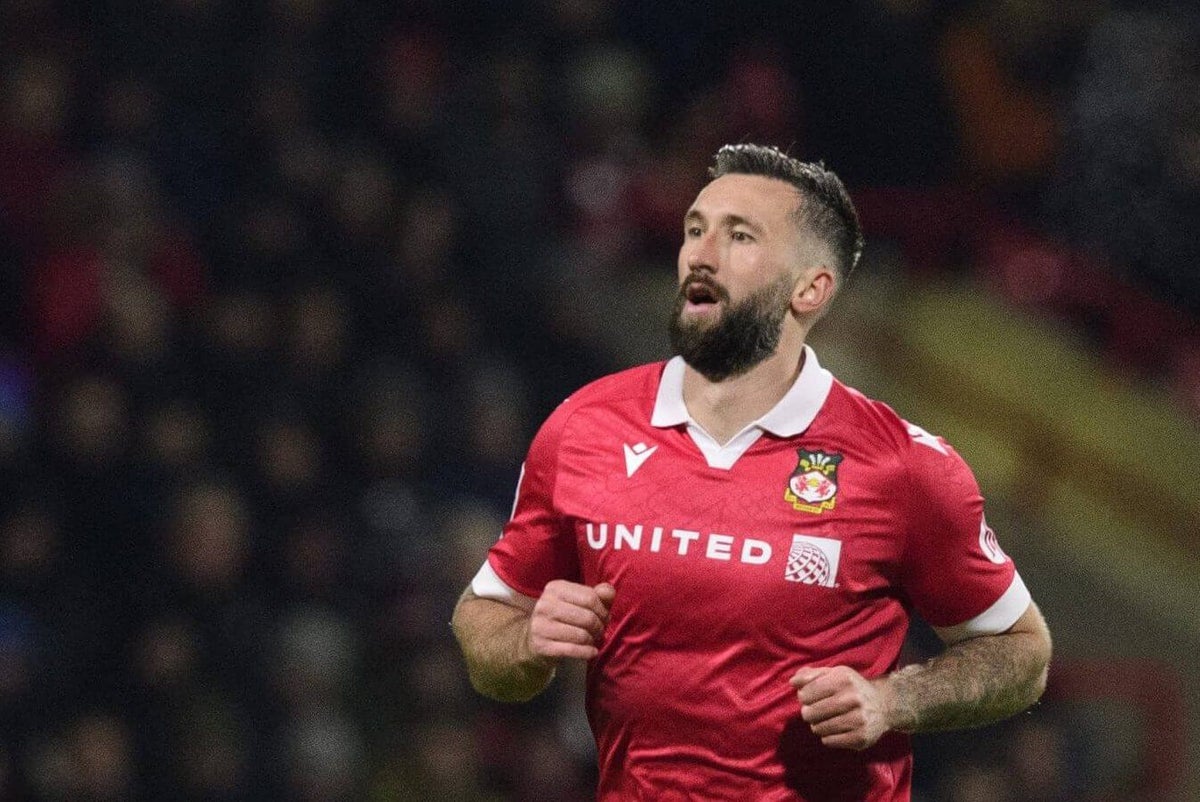


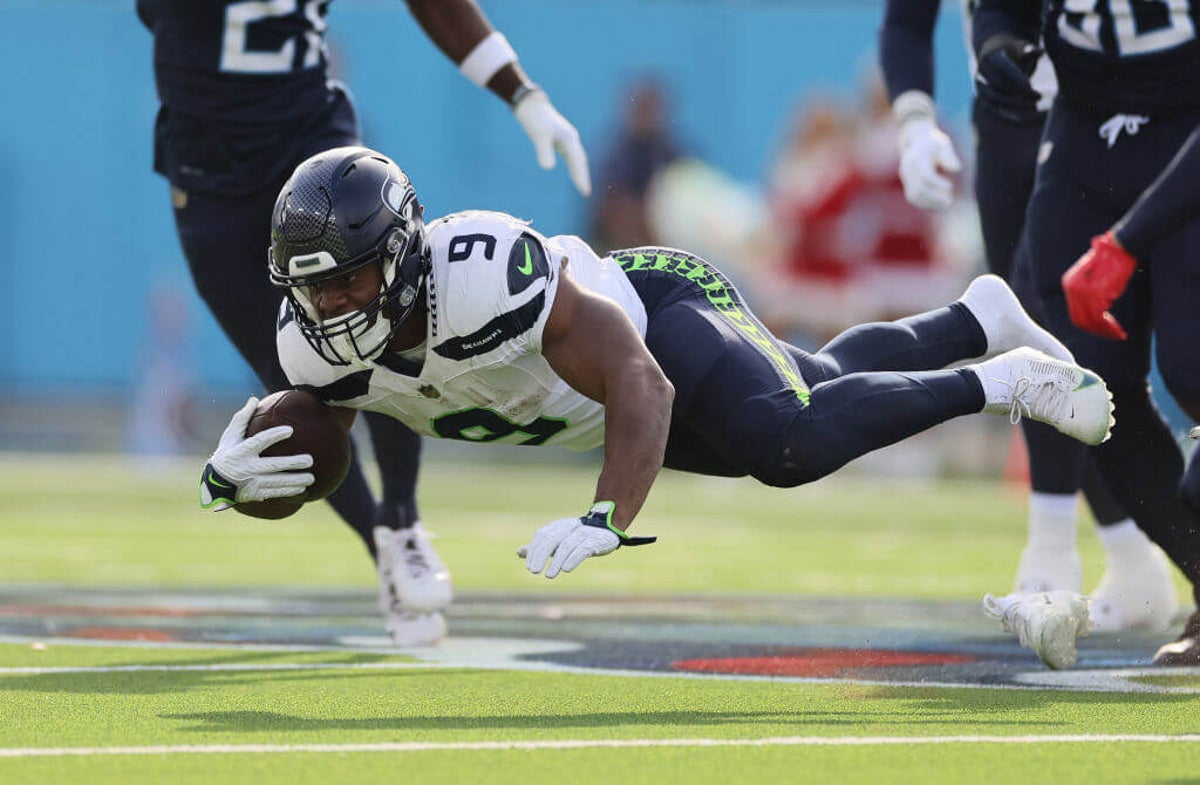
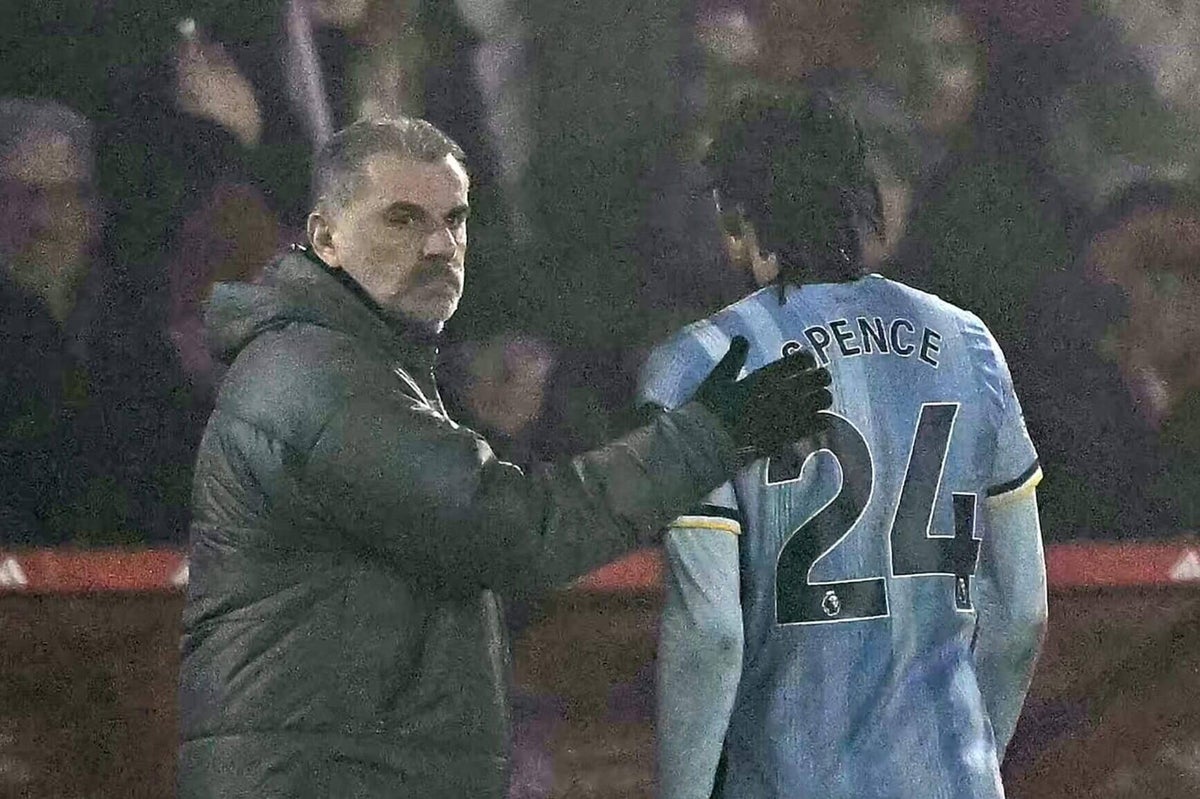

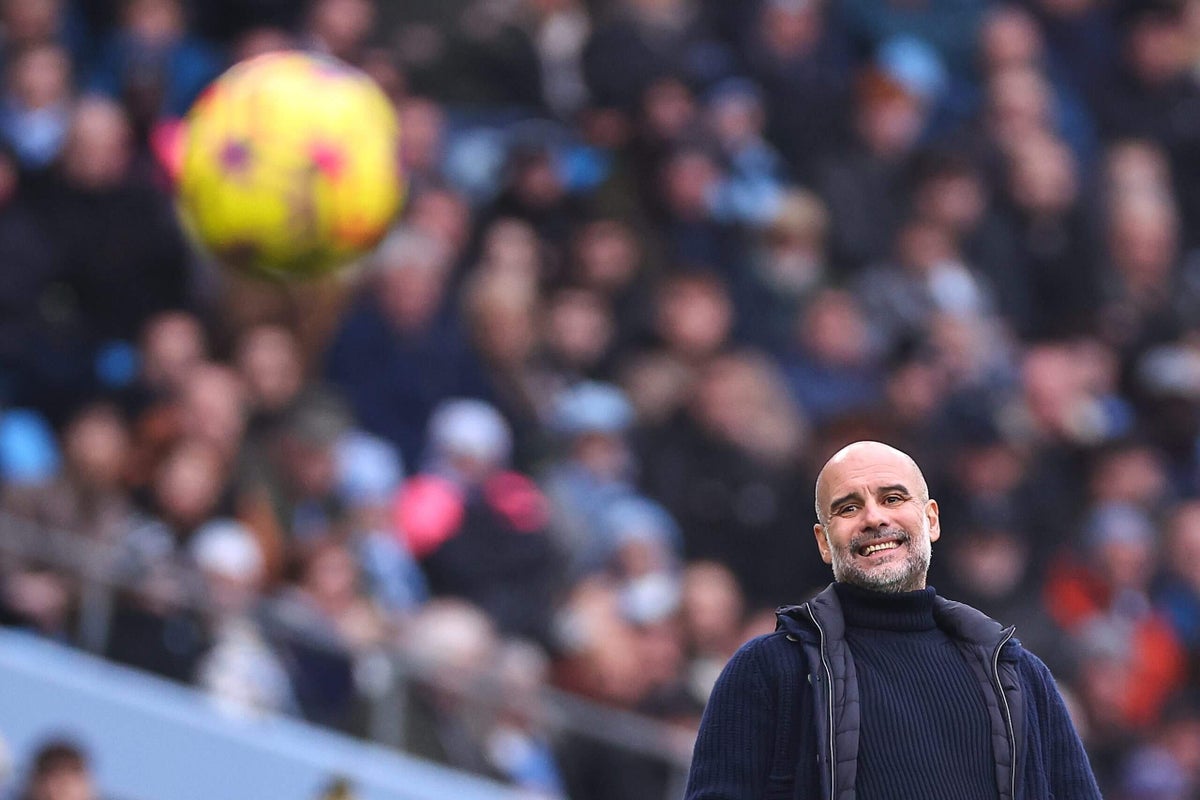
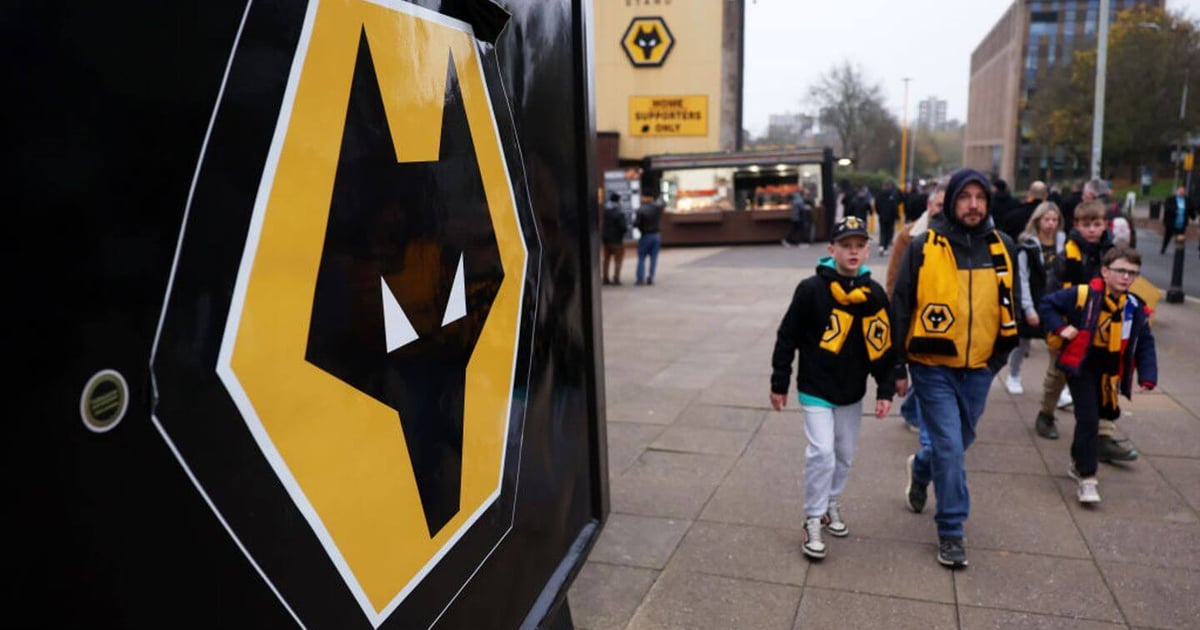


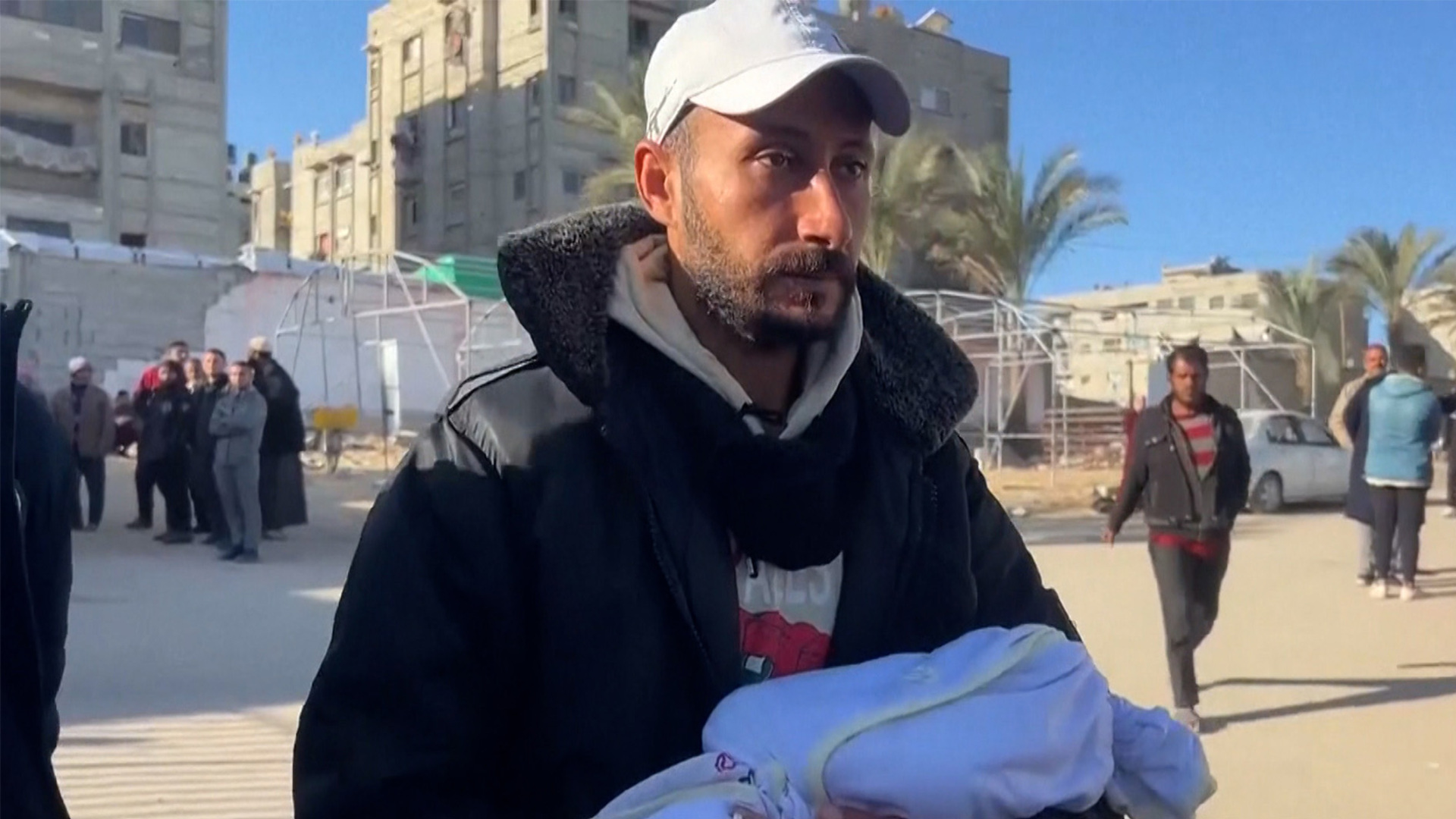
Leave a Reply